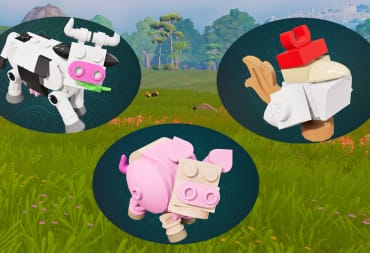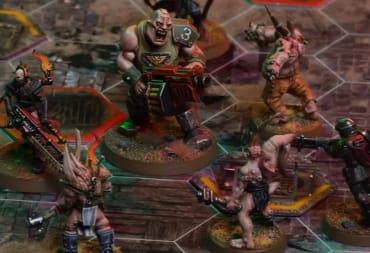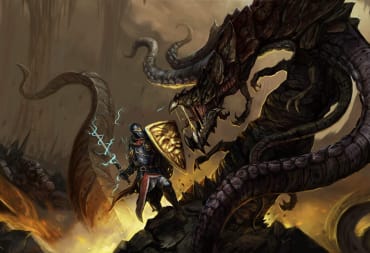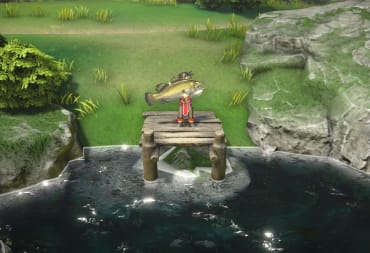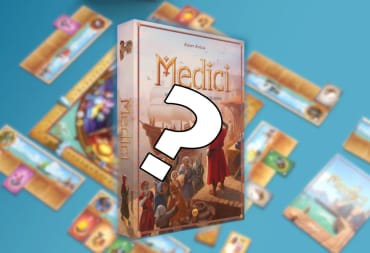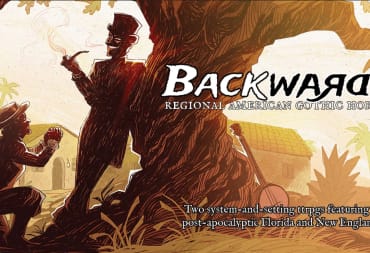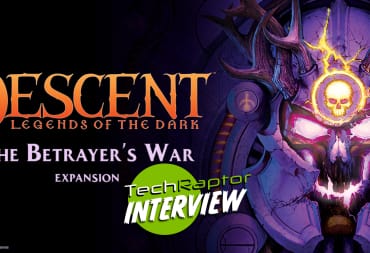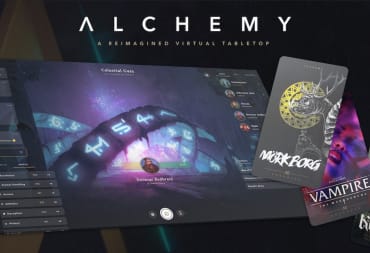I interviewed John O'Meara about a neat game called Galactose: Pastries In Space. It's a cool game about cupcake fighters in space. (Really.)
In addition to the conversation we had about his game, Mr. O'Meara and I somehow ended up talking about game pricing and the state of the industry relating to it. When I listened back to the recording I thought it was a productive enough conversation to stand on its own, so here it is!
TechRaptor: What's your stance on piracy? Do you care about it? I think no developer would ever say, "Oh yeah, no, don't buy our games."
John O'Meara: Well, I'm not gonna say "Don't buy our games," but as an indie piracy isn't the thing I'm worried about - it's obscurity. If 50,000 pirated my game and started tweeting about it and linking it to their friends I would probably make a hundred times more money than I'm likely to make as it is. So piracy doesn't bother me so long as some people actually buy it. That being said, I can understand why other people don't like it. But I feel like piracy is a result of demand that's not met by supply. If you sell something and people can't afford it. If you sell something and you can't buy it because it's region-locked. If you're no longer selling something and people want to play it. I think there's a lot reasons people pirate. I think most of it is because people are trying to make too much money so they sell things in really awkward ways. Because of that people have gotten used to pirating and now some people expect things to be free. I think it's sort of a combination of [those things]. I really blame the record industry and the RIAA for giving us piracy.
TR: Because they charged obscene prices, I'll give you that.
JO: Well, they created the mess that led to this. I don't know if that's a good thing or a bad thing. But they also did give us digital [downloads].
TR: There's a market [for digital as evidenced by] torrents and [other kinds of piracy].
JO: Digital e-books and stuff like that... I don't think that would ever really have happened-
TR: Crunchyroll probably wouldn't exist if people didn't pirate anime online.
JO: All these things would be so different and I'm not sure they're a bad thing.
TR: See me personally ... did you ever see that [article] with Valve before they started doing their crazy sales [and] what happened with Left 4 Dead when they originally put it on sale?
JO: I didn't.
TR: Okay, so Left 4 Dead was retailing for $50. [Valve] put it on sale for $25 – 50% off, for two days. They made less money per copy but their sales volume went up 30x. They made more money in that two day sale period than they did at launch. I'm personally of the belief that volume sales in the digital landscape is the most important thing so stuff should be as cheap as possible.
JO: I agree to a point. I feel like ... there's a point at which if you make it cheaper you're gonna make less money.
TR: Yeah, but it's hard to tell [what that point is]. If I asked you—objectively speaking, if you knew for a fact [it would work out like this]—you could sell one copy of a game at $20 or five copies at $5 which would you rather do?
JO: Five at five.
TR: But you don't know [how it would turn out in the real world] for sure.
JO: Yeah. But I feel like if you look at certain price points I think that there's some that are pretty natural. $20 is usually a good sort of expensive range. And that seems to be born out of a lot of Kickstarter stuff. And then $10 is a [more typical] cheap [price]. I don't really wanna go a lot cheaper than $10 because if you go from $1 to 10 it's only a nine dollar difference but you cut your profits to 1/10th.
TR: There is still the volume sales to consider. Look at the sales spikes during [big seasonal sales].
JO: True. If I knew I'd sell a hundred units at a dollar [each] versus ten units at $10 [each] it would be basically the same thing. But I feel like it's very hard to reach ridiculous sales especially considering the splits they have. Everything has a 70/30 split and then you have to take off taxes from [the remaining 70%].
TR: So you probably get about a third of the [actual sale price after taxes.] And then of course that [has to cover] all of your expenses.
JO: Yeah. It's sort of why I wouldn't [consider] a $1 price.
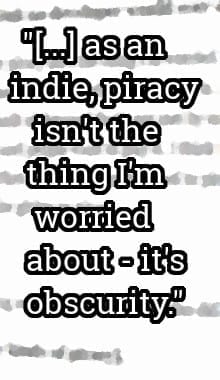 TR: I wouldn't say a dollar. Like, me ... I see a lot of indie games generally that are like ten or fifteen or twenty dollars that—just me personally, not talking overall market forces—I'm waiting on that. But I would have bought that if [those games] were $5 without even thinking about it. When you say "$20 is a natural price point", to me as a consumer who doesn't have a lot of disposable income ... $5 makes me way more prone to impulse purchasing. I have never bought a game for $5 and regretted it. Once it gets [to] about [$10] and above—I've bought games at that price point [and thought], "That was a waste of ten dollars." [And that's] because I know for that $10 price point I could have [gotten] two $5 games and if even one of those were good that was a better deal.
TR: I wouldn't say a dollar. Like, me ... I see a lot of indie games generally that are like ten or fifteen or twenty dollars that—just me personally, not talking overall market forces—I'm waiting on that. But I would have bought that if [those games] were $5 without even thinking about it. When you say "$20 is a natural price point", to me as a consumer who doesn't have a lot of disposable income ... $5 makes me way more prone to impulse purchasing. I have never bought a game for $5 and regretted it. Once it gets [to] about [$10] and above—I've bought games at that price point [and thought], "That was a waste of ten dollars." [And that's] because I know for that $10 price point I could have [gotten] two $5 games and if even one of those were good that was a better deal.
JO: Part of it is you want to have a decreasing [price]. It's better to have a higher price at launch and give people...
TR: And dial it down over time?
JO: You make them feel like they're getting more for their money. It's better to start at $10 or $20 and [then eventually put it on sale] like "half off at $5!".
TR: Yeah, there's also the sale culture to consider.
JO: There's a reason that big stores mark things up so they can [advertise] discounts and sell things at their expected price. Human psychology is really bad at spending money.
TR: It is. But see, that's the thing. If I bought two $5 games and they sucked and I bought a $10 game and I liked it ... technically the $10 game was a smarter decision, but I don't feel as bad about the $5 games individually as I do about the $10 games if [they] suck.
JO: I feel like we're looking at things wrongs. Games are not a interchangeable medium. Game A and Game B are generally not substitutes for each other.
TR: Yes, but money is interchangeable. And when you only have $5 to spend [on a game] you don't look at it as "I didn't like that game" from a consumer standpoint. You look at it as, "I wasted that $5 and that $5 could have went towards something else that might not have been as bad."
JO: True. Well, if you want to try Galactrose: Pastries in Space you can just download the latest build from our website. So right now it's free! I'm eventually going to make it not free. We're in alpha now. The reason I say alpha isn't because it's super unstable or super [prone to crashing].
TR: You mean the actual technical term "alpha" and not the marketing term "alpha." Where's it like "We didn't finish this but we want you to pay money."
JO: Well, basically what I mean is that there's still major game systems that we haven't even touched yet. Technically we're in alpha. I don't that hype thing.
TR: So I'm gonna guess that you're not one of those people [who] believe that demos hurt sales?
JO: I have heard things [about that]. But I also think that it's nice to try demos. I think demos are a good way for a theoretical discouragement of piracy. I don't think they actually help there but they're a good theoretical argument. If you download a demo you can test to make sure it works on your machine. You can test to see if it's fun usually. And you can see if you like it. For free.
TR: Well, you could have all the system requirements [listed] and there still might be some weird quirk [with your computer] and the game doesn't work. Although now with Steam refunds that's kind of mitigated. Still, that used to be a risk. And then you'd have to go to Steam support ... I think, honestly speaking, the reason anybody pays money for anything is either it's more convenient than pirating or they're feeling fair and generous. Pretty much if you wanted to pirate everything there's nothing stopping you on the technical level. And nothing really stopping you on the legal level because it's impractical to sue everybody who pirates and it's never gonna happen. It's almost in my view as if the market is held up by people's good will. [I think most people] want to give developers money for their work.
JO: I think a lot of people just don't pirate. They just never got into it.
TR: Oh yeah, most people don't [pirate]. Of course. There's risks—viruses and technical problems. And then of course there's the [unsavory people] who just pirate and never pay for anything. They're rare, but they exist.
JO: I think those people] are actually a symptom of the fact that we have piracy. I think those people are around because there's piracy and it's easy to do that. I think in the end if those people ever become the majority this industry is screwed.
TR: I think although humans are generally shortsighted in a lot of ways, I don't think there's enough shortsighted gamers out there that [would ever make that situation] a reality. That could happen today, but it hasn't yet and I don't think it will. On the technical level ... as easy as it is to [pirate], nothing is stopping what you just described from happening but it hasn't. [I think] most gamers know they can pirate.
JO: I feel like for the most part unless you do something really stupid with DRM. I don't see pirating as lost sales. I see them as a [problem with the supply]. The supply does not meet what the consumer wanted.
TR: Do you think it's at all possible to convert someone who pirated into a sale of a game?
JO: I think if people want to support the developers of games they like they should [try to buy it] if they've pirated it. Unfortunately, some games are too expensive.
TR: If someone were to pirate [one of your games] and you were to speak them and try to convince to them to buy it, that's what you'd say to them?
JO: [Yes], or just, "Tell your friends about it." That's probably more effective for us as an indie game. If someone put up a torrent of our game and ten million people downloaded it, [I'd be thinking], "Oh my god, we've just went big league."
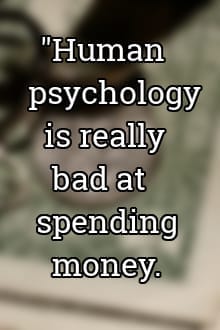 TR: Would it be accurate to say in your view [that] you don't view that as ten million lost sales [but rather] you view that kind of like ten million ad impressions?
TR: Would it be accurate to say in your view [that] you don't view that as ten million lost sales [but rather] you view that kind of like ten million ad impressions?
JO: A little bit. Ten million is probably a bad number. I feel like that partly reaches the saturation of the genre market.
TR: I would wager- in this crazy world where ten million people pirated your game, if you sold twenty million copies I don't think you'd care about the ten million people who pirated.
JO: No.
TR: I imagine piracy probably scales with how popular a game is. Way more people pirate GTA V probably than people [who] pirated Game Dev Tycoon.
JO: That's probably true.
TR: So almost in a way I would bet that piracy is indicative of how well a game is doing on the market. What do you think of that?
JO: I don't think that's quite true. I think there's a correlation, but I don't think it's a...
TR: [You don't think it's] like a 1:1 perfect formula?
JO: My counter example is something like Spore where even a lot of people who bought it also pirated it.
TR: Because they had crappy DRM.
JO: I think really the metric is whether or not the legal supply of something matches what people want. [For example,] there's a lot of things you can get on Google Play such as old shows but if you want to watch it in a different language you're screwed. The other day I was trying to watch a Blu-Ray disc and...
TR: You get hit by a region lockout?
JO: No, no, it was the right region but I had to rip it to watch it. I could not get it to play on my computer. I was just blown away by the failure of that.
TR: Sometimes that's how it goes, unfortunately.
I had a really great discussion with John about the state of the industry nowadays. More and more game developers are starting up and it's going to be very interesting to see how the industry changes in the coming years. I largely agree with him, although I have to say my wallet wouldn't be as empty if games were just a little bit cheaper.
How much is "too much" for a game in your opinion? Do you buy games on launch day or do you wait for a sale? Let us know in the comments below!
Have a tip, or want to point out something we missed? Leave a Comment or e-mail us at tips@techraptor.net

